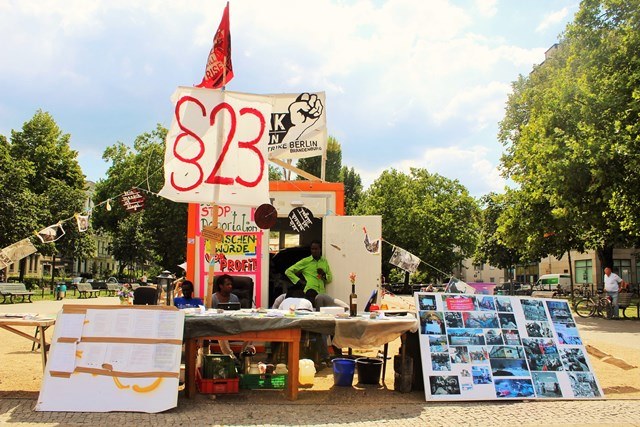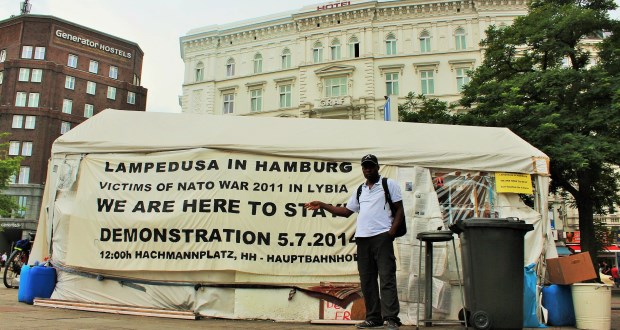It’s been heartwarming to see crowds of Germans waving signs of welcome at refugees who’ve trekked from Syria to Turkey, past Hungary’s razor wire borders and through Austria’s closing gates. But as touching as it was to see children waiting with toys to greet those fleeing a horrific war, I’m now wondering what will happen when the world’s kumbaya moment is over and the displaced are settled within the Europe’s bureaucratic asylum systems? Where will the multitudes live if states can’t find space to accommodate them?
Last year, I spent a few months in Germany and some weeks travelling around southern Europe. I met refugees from everywhere who’d fled poverty and war in Sudan, conflict in the Ukraine  and the terror of Libya’s war.
In meeting these refugees, some of whom had rejected living in the mandatory, overcrowded lagers (refugee camps) of Berlin, Hamburg and Munich, I got to learn about the difficulties of Germany’s asylum system.
The system prevents people from moving outside of a 20-mile radius of the lager and the EU system states one must claim asylum in the EU country of first arrival. This could mean those who had moved from Italy or Spain, where the welfare offered little more than a few hundred Euros and a place to sleep, to Germany might have had to go back. In protest against the lager system, hundreds of Berlin’s refugees from Syria and Libya – citizens and migrants – preferred to sleep under the stars in a small park rather than to live in the lagers.

In Hamburg, a group of 500 asylum seekers who described themselves as “NATO’s refugees†demanded EU assistance as some of them had fled Libya where they’d lived as citizens and migrant workers until they could no longer bear the war that toppled dictator Muammar Gaddafi.
Many Europeans I met were welcoming of the displaced, but many weren’t. The Italian aristocrat who hosted me in Agrigento, southern Sicily, worried about Muslim refugees threatening his Catholic way of life. The residents of Lampedusa seemed relieved to have their holiday island “back”.
So, remembering the hunger strikes and Occupy protests of Berlin and Amsterdam’s refugees, if I was Syrian, I’d take the niceties of German chancellor Angela Merkel and EU chairperson Jean-Claude Juncker with a big pinch of salt.
Already, a buy-out option has been tabled for EU states who don’t want the burden of the refugee crisis. Clearly, Austria and Hungary want none of it, so maybe their chequebooks will be brought out soon.
On another tip, Slovakia has said it has no space for Muslims – anyone, but Allah-worshipping refugees in Bratislava.
After the drowning of little Aylan Kurdi and many others journeying to Europe by sea, the world may learn plenty.
RELATED: Aylan Kurdi: A political murder masked as a drowningÂ
Change is happening but I’m still holding my breath hoping for more – that Europe’s asylum systems become easier and pledges of aid become a reality for all those who’ve fled conflict.
Holding,
TM










